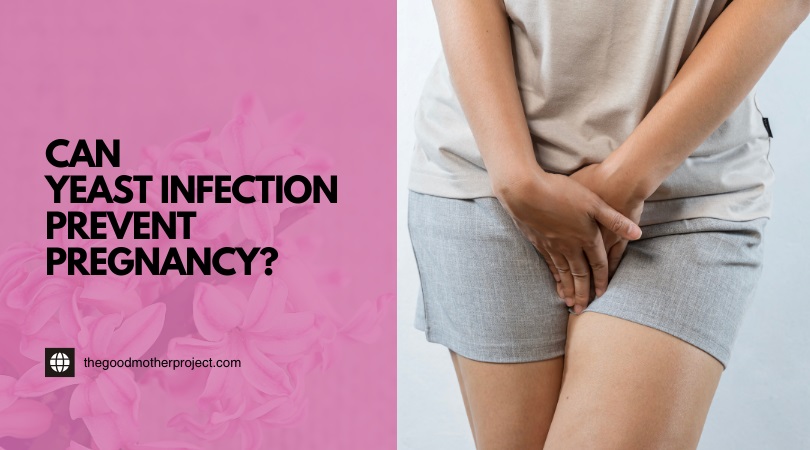Last Updated on January 6, 2025
Yeast infections do not prevent pregnancy. However, they can cause discomfort and may affect sexual activity.
Yeast infections are common and typically caused by an overgrowth of Candida fungi. Symptoms include itching, burning, and unusual discharge. While these infections can be bothersome, they do not directly impact fertility or the ability to conceive. Women experiencing recurrent yeast infections may want to consult a healthcare provider.
Understanding the signs and symptoms can help in seeking timely treatment. Staying informed about reproductive health is crucial for overall well-being. Many women may worry about how these infections might affect their sexual health or pregnancy, but with proper care, they can manage symptoms effectively without hindering their chances of becoming pregnant.
The Link Between Yeast Infections And Fertility
Understanding the connection between yeast infections and fertility is essential. Many women wonder if these infections can impact their ability to conceive. This section explores the basics of yeast infections and their potential effects on fertility.
Yeast Infection Basics
A yeast infection is caused by an overgrowth of the fungus Candida. This fungus is naturally present in the body but can multiply under certain conditions. Common symptoms include:
- Itching and irritation
- Unusual discharge
- Redness and swelling
Yeast infections are not sexually transmitted. They can occur due to:
- Antibiotic use
- Hormonal changes
- High sugar diets
- Weakened immune systems
Impact On Fertility
Yeast infections can affect fertility in several ways. They may cause discomfort, leading to less sexual activity. Stress and anxiety from the infection can also impact overall reproductive health.
Some studies suggest a potential link between chronic yeast infections and fertility issues. Persistent infections can cause:
| Possible Effects | Description |
|---|---|
| Inflammation | May disrupt the reproductive organs. |
| Imbalance | Can affect vaginal pH levels. |
| Stress | Can affect hormonal balance. |
Addressing yeast infections promptly can help maintain reproductive health. Seeking treatment for symptoms is crucial for overall well-being.
Debunking Myths Around Yeast Infections And Conception
Many people believe that a yeast infection can affect pregnancy chances. Misunderstandings about yeast infections can create unnecessary worry. Let’s clear up these myths with clear facts.
Common Misconceptions
- Myth 1: Yeast infections cause infertility.
- Myth 2: You can’t get pregnant with a yeast infection.
- Myth 3: Yeast infections are sexually transmitted.
- Myth 4: Only women can get yeast infections.
These beliefs can lead to confusion. It’s important to distinguish between fact and fiction.
Scientific Evidence
| Myth | Fact |
|---|---|
| Yeast infections cause infertility. | Yeast infections do not affect fertility. |
| You can’t conceive with a yeast infection. | Conception is still possible during a yeast infection. |
| Yeast infections are sexually transmitted. | They can occur due to other factors. |
| Only women get yeast infections. | Men can also experience yeast infections. |
Research shows that yeast infections do not prevent pregnancy. They are common and treatable. Understanding the facts can help reduce anxiety.
Stay informed. Knowledge empowers you to make better health choices.
Managing Yeast Infections For Better Reproductive Health
Yeast infections can impact reproductive health. Managing these infections is essential for overall wellness. Proper care can enhance your chances of conception.
Preventive Measures
Preventing yeast infections helps maintain reproductive health. Here are effective strategies to reduce the risk:
- Wear breathable clothing: Choose cotton underwear.
- Avoid douching: This disrupts natural balance.
- Limit sugar intake: Sugar fuels yeast growth.
- Maintain hygiene: Clean the genital area daily.
- Stay hydrated: Drink plenty of water.
Treatment Options
Effective treatment options can help clear yeast infections. Here are common methods:
| Treatment | Description |
|---|---|
| Over-the-counter medications | Topical creams and suppositories are available. |
| Prescription medications | Doctors may prescribe stronger antifungal treatments. |
| Home remedies | Yogurt and garlic may help restore balance. |
Consult a doctor for proper diagnosis and treatment. Do not self-diagnose. Early intervention can improve reproductive health.
Frequently Asked Questions
Can A Yeast Infection Affect Fertility?
Yeast infections typically do not impact fertility directly, but they can cause discomfort that may affect intimacy.
Do Yeast Infections Delay Periods?
Yeast infections don’t directly delay periods, but stress and hormonal changes related to them can influence your cycle.
Can I Get Pregnant With A Yeast Infection?
Yes, it’s possible to become pregnant while having a yeast infection. It won’t prevent conception.
What Are The Symptoms Of A Yeast Infection?
Common symptoms include itching, burning, and unusual discharge. Seek medical advice for accurate diagnosis.
How To Treat Yeast Infections Effectively?
Over-the-counter antifungal medications and home remedies can help. Consult a doctor for persistent issues. “`
Conclusion
Yeast infections can cause discomfort and health concerns. While they do not directly prevent pregnancy, they can affect overall reproductive health. Seeking prompt treatment is essential for maintaining balance and wellbeing. Always consult a healthcare provider for personalized advice. Prioritize your health to support reproductive goals effectively.








